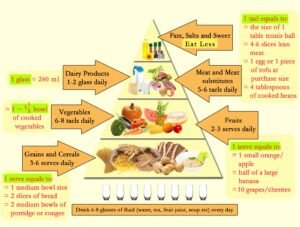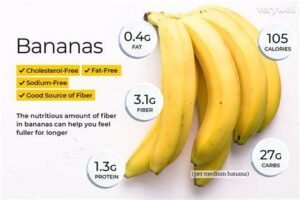What is the Nutrition Wave?
Let’s talk about the nutrition wave.
You’ve probably heard the term “nutrition wave” floating around. Maybe you’ve seen it on social media, or perhaps in a health magazine. But what does it really mean?
Well, imagine your health as a surfer riding a wave. When you’re on top of the wave, you feel amazing. You have energy, you feel good, and you’re glowing. But when you fall off, you might feel sluggish, tired, or even unhealthy.
That’s where the nutrition wave comes in. Perfect balance of healthy eating habits that keep you feeling great and energized. It’s not about strict diets or crazy fad trends. It’s about making simple, sustainable changes that you can stick with for the long haul.

surfer riding a wave, symbolizing good health and energy
Think of it as creating a healthy lifestyle that you love. It’s like building a strong foundation for your overall well-being. And the best part? You’re in control of the ride!
Click to see
Whole Foods: The Cornerstone of Your Health
Let’s talk about the building blocks of a healthy body: whole foods.
Imagine your body is a car. You wouldn’t put low-quality fuel in it, right? The same goes for your body. Whole foods are like premium fuel, giving your body the energy and nutrients it needs to run smoothly.
What are whole foods?
Think of them as foods that are as close to their natural state as possible. We’re talking about fruits, vegetables, whole grains, lean proteins, and healthy fats. These foods are packed with vitamins, minerals, and fiber, which are essential for good health.

- Boost Your Energy: Whole foods provide a steady supply of energy, keeping you feeling alert and focused throughout the day.
- Support Weight Management: The fiber in whole foods helps you feel full, which can help you control your appetite and maintain a healthy weight.
- Improve Digestion: Your body loves whole foods! They’re easier to digest than processed foods, leading to a happier gut.
- Stronger Immune System: Packed with antioxidants, whole foods help protect your body from damage and boost your immune system.
Make Whole Foods Your New Best Friend
Incorporating whole foods into your diet doesn’t have to be complicated. Here are some simple tips:
- Start small: Begin by replacing one processed food with a whole food option each day.
- Meal prep: Dedicate some time on weekends to prepare healthy meals for the week.
- Get creative: Experiment with different recipes and flavors to keep things interesting.
- Read labels: Be mindful of hidden sugars and additives in packaged foods.
Small steps can lead to big changes in your overall health and well-being. Let’s make whole foods a delicious part of your daily life!
Mindful Eating: More Than Just Eating
Mindful eating is about creating a conscious relationship with food. It’s about slowing down, savoring each bite, and listening to your body’s hunger and fullness cues.
Why is it important?
- Emotional Eating: Mindful eating helps you identify if you’re eating due to hunger or emotions.
- Portion Control: Paying attention to your body’s signals can prevent overeating.
- Digestive Health: Eating slowly and chewing thoroughly aids digestion.
- Enhanced Taste: Savoring each bite allows you to fully appreciate the flavors of your food.
Tips for Mindful Eating:
- Create a peaceful eating environment: Find a quiet place to eat, free from distractions.
- Put away your phone: Focus on your meal, not your screen.
- Eat slowly: Take small bites and chew thoroughly.
- Listen to your body: Pay attention to hunger and fullness cues.
- Practice gratitude: Appreciate the food you’re eating and the nourishment it provides.
Remember, mindful eating is a skill that takes practice. Be patient with yourself and enjoy the journey.
Hydration: Quench Your Thirst, Boost Your Health
Let’s talk about the often-overlooked hero of your health: water. Staying hydrated is crucial for overall well-being.
Why is hydration so important?
- Energy Booster: Water helps transport nutrients and oxygen to your cells, giving you that energy boost.
- Brain Power: Dehydration can affect your concentration and memory.
- Skin Health: Water helps keep your skin hydrated and glowing.
- Weight Management: Staying hydrated can help control your appetite.
How much water should you drink?
The general rule is to drink eight glasses of water a day. However, your needs may vary depending on your activity level, climate, and overall health.
Tips for staying hydrated:
- Carry a reusable water bottle with you.
- Eat water-rich foods like fruits and vegetables.
- Limit sugary drinks and alcohol.
- Listen to your body. If you’re thirsty, drink water!
Remember, staying hydrated is simple yet essential for a healthy lifestyle. Let’s make it a habit!
Electrolytes: More Than Just Water
Electrolytes are essential minerals that help your body function properly. They work together with water to maintain balance.
Why are electrolytes important?
- Muscle function: Electrolytes help your muscles contract and relax.
- Nerve function: They help transmit signals between your brain and body.
- Fluid balance: Electrolytes help regulate the amount of water in your body.
Where to find electrolytes?
You can get electrolytes from foods like fruits, vegetables, and dairy products. Sports drinks can also be a source, but be mindful of added sugars.

glass of water with a lemon and a pinch of salt
Remember, while electrolytes are important, it’s essential to maintain a balance. Too much or too little can lead to health issues.
Make Water Exciting: Fun Ways to Hydrate
Drinking plain water can get boring, right? Let’s spice things up!
- Flavor it up: Add slices of lemon, lime, or cucumber to your water for a refreshing twist.
- Infused water: Experiment with different fruits, herbs, and vegetables to create your own unique flavors.
- Watermelon water: Blend watermelon and strain for a sweet and hydrating treat.
- Herbal tea: Enjoy the benefits of hydration while sipping on your favorite herbal tea.
Remember, variety is key! Keep trying new ways to make water enjoyable.
Balanced Bites: Fuel Your Body Right
Let’s talk about the building blocks of your meals: macronutrients. These include proteins, carbohydrates, and fats. They all play a crucial role in your health.
Why is balance important?
- Energy: Carbohydrates are your body’s main source of energy.
- Muscle building: Protein is essential for repairing and building tissues.
- Hormone production: Fats are needed for hormone production and nutrient absorption.
How to balance your plate?
- Fill half your plate with fruits and vegetables.
- Make a quarter of your plate protein-rich foods.
- Fill the remaining quarter with whole grains.

Remember, it’s about finding the right balance for your body and lifestyle.
Macronutrient Myths: Setting the Record Straight
Let’s clear up some common misconceptions about macronutrients.
Myth 1: All carbs are bad.
This is simply not true. Carbohydrates are your body’s primary energy source. It’s important to focus on whole grains, fruits, and vegetables, which provide essential nutrients along with energy.
Myth 2: Fat makes you fat.
Healthy fats are essential for your body’s functions. They help absorb vitamins, build cells, and keep you feeling full. It’s about choosing the right fats, like those found in avocados, nuts, and olive oil.
Myth 3: Protein is only for muscle building.
While protein is essential for muscle growth and repair, it also plays a vital role in other bodily functions, such as hormone production and immune function.
Remember, moderation is key. Enjoy a variety of foods from all macronutrient groups for optimal health.
Meal Planning: Your Roadmap to Nutrition Wave Journey
Creating a meal plan can help you reach your macronutrient goals. It doesn’t have to be complicated.
Tips for meal planning:
- Set realistic goals: Start small and gradually increase the complexity of your meal plans.
- Consider your lifestyle: Choose recipes that fit your schedule and cooking abilities.
- Involve your family: Get everyone involved in meal planning for better buy-in.
- Prep ahead: Prepare ingredients or even whole meals in advance to save time.
- Be flexible: Don’t be afraid to switch things up if your plans change.

weekly meal plan template
Remember, a meal plan is a guide, not a strict rulebook. Enjoy the process and experiment with different foods and recipes.
Move Your Body: Exercise is Essential
Let’s talk about the importance of exercise in your nutrition wave journey. Moving your body is just as crucial as eating right.
Why is exercise important?
- Burns calories: Exercise helps you burn extra calories and maintain a healthy weight.
- Builds muscle: Strength training helps build and maintain muscle mass.
- Boosts mood: Exercise releases endorphins, which can improve your mood and reduce stress.
- Better sleep: Regular physical activity can help you sleep better.
- Heart health: Exercise helps strengthen your heart and improve circulation.

Find activities you enjoy:
- Dance like nobody’s watching: Turn up the music and let loose.
- Hit the pavement: Go for a brisk walk or run.
- Strength training: Lift weights or use resistance bands.
- Outdoor adventures: Explore nature through hiking or biking.
Best Exercises for Your Body
Let’s talk about the types of exercise that can help you reach your health goals.
Cardio: This gets your heart pumping and helps burn calories. Think running, swimming, dancing, or biking.
Strength training: Building muscle helps boost your metabolism and tone your body. Lifting weights, bodyweight exercises, or using resistance bands are great options.
Flexibility and balance: Yoga, Pilates, and stretching improve your flexibility and balance, reducing your risk of injuries.
Find what you love: The best exercise is the one you enjoy. Experiment with different activities to find what works for you.
Create Your Own Workout Routine
Designing a workout routine that fits your lifestyle is key. Here are some tips:
- Start small: Begin with short workouts and gradually increase duration and intensity.
- Mix it up: Incorporate different types of exercise to prevent boredom.
- Find a workout buddy: Having a partner can boost motivation.
- Listen to your body: Take rest days when needed.
- Set realistic goals: Celebrate small victories along the way.

workout schedule planner
Sleep: The Forgotten Pillar of Health
Let’s talk about the often-overlooked hero of your health: sleep. It’s just as important as nutrition and exercise.
Why is sleep important?
- Energy levels: Sleep helps restore your energy levels and keeps you feeling refreshed.
- Weight management: Lack of sleep can disrupt hormones that regulate hunger and fullness.
- Mood: Sleep deprivation can contribute to mood swings and irritability.
- Immune function: Sleep helps your body fight off infections.
- Cognitive function: Sleep is essential for memory, concentration, and decision-making.
Tips for better sleep:
- Create a sleep-conducive environment: Keep your bedroom dark, quiet, and cool.
- Establish a bedtime routine: Develop a relaxing routine before bed.
- Limit screen time: The blue light from screens can interfere with sleep.
- Manage stress: Practice relaxation techniques like meditation or deep breathing.
Quality sleep is essential for overall well-being. Aim for 7-9 hours of uninterrupted sleep each night.
Sleep Deprivation: Your Metabolism’s Enemy
Lack of sleep can wreak havoc on your metabolism. When you’re tired, your body produces more of the hunger hormone (ghrelin) and less of the fullness hormone (leptin). This can lead to overeating and weight gain.
Sleep deprivation also slows down your metabolism, making it harder to burn calories. It’s a vicious cycle!
Prioritize sleep for better weight management and overall health.
Unwind and Recharge: Your Bedtime Routine
Creating a relaxing bedtime routine signals to your body that it’s time to wind down.
Tips for a calming bedtime routine:
- Unplug: Turn off electronics at least an hour before bed.
- Warm bath: Soaking in a warm bath can relax your muscles.
- Gentle reading: Choose a calming book over a suspenseful one.
- Mindfulness or meditation: Practice deep breathing or meditation to clear your mind.
- Light stretching: Gentle stretches can help release tension.
- Lavender or chamomile tea: These calming beverages can promote relaxation.

person taking a relaxing bath
Stress Less, Live More: Manage Your Stress
Stress can wreak havoc on your health and weight management goals. It’s important to find healthy ways to cope.
How stress affects your body:
- Overeating: Stress can lead to emotional eating and unhealthy food choices.
- Weight gain: Chronic stress can contribute to weight gain.
- Sleep disruption: Stress can make it difficult to fall asleep or stay asleep.
- Weakened immune system: Chronic stress can increase your risk of illness.
Manage Your Stress :
- Mindfulness and meditation: Practice deep breathing and mindfulness to calm your mind.
- Yoga or tai chi: These gentle exercises can reduce stress and improve flexibility.
- Spend time in nature: Enjoy the calming effects of being outdoors.
- Connect with others: Talk to friends, family, or a therapist about your feelings.
- Time management: Prioritize tasks and break them down into smaller steps.
Stress Eating: Breaking the Cycle
Stress can trigger emotional eating. It’s your body’s way of seeking comfort. However, stress often leads to unhealthy food choices.
Tips to manage stress eating:
- Identify your triggers: Pay attention to situations that lead to emotional eating.
- Find healthy coping mechanisms: Exercise, meditation, or spending time in nature can help.
- Practice mindful eating: Focus on your food and hunger cues.
- Seek support: Talk to a friend, family member, or therapist about your challenges.

Remember, it’s okay to indulge occasionally, but try to find healthier ways to cope with stress.
Relax and Recharge: Finding Your Calm
Let’s explore some relaxation techniques to help you unwind and manage stress.
Deep Breathing
This simple technique can quickly calm your nervous system. Inhale deeply through your nose, hold for a few seconds, and exhale slowly through your mouth.
Progressive Muscle Relaxation
Focus on tensing and releasing different muscle groups in your body. This helps release physical tension.
Mindfulness Meditation
Bring your attention to the present moment without judgment. This can help reduce anxiety and improve focus.
Yoga and Tai Chi
These gentle practices combine physical movement, breathing, and meditation for overall well-being.
Remember, finding the right relaxation technique is personal. Experiment to see what works best for you.
Consistency is Key: Ride the Nutrition Wave
Remember, achieving your health goals takes time and effort. There will be ups and downs, but consistency is key.
- Small steps: Start with small, achievable changes.
- Celebrate successes: Reward yourself for reaching milestones.
- Be patient: Results take time. Don’t get discouraged.
- Enjoy the journey: Focus on progress, not perfection.
By incorporating these hacks into your daily life, you’ll be well on your way to a healthier, happier you. Remember, the nutrition wave is a journey, not a destination. Enjoy the ride!
Recap: Your 7 Nutrition Wave Hacks
Let’s recap the 7 key steps to transform your health:
- Prioritize Whole Foods: Build a strong foundation with nutrient-rich foods.
- Mindful Eating: Connect with your body and enjoy your meals.
- Hydration is Key: Stay hydrated for optimal health and energy.
- Balanced Macronutrients: Fuel your body with the right amount of proteins, carbs, and fats.
- Regular Exercise: Move your body for physical and mental well-being.
- Quality Sleep: Prioritize sleep for rejuvenation and energy.
- Stress Management: Find healthy ways to cope with stress.
By incorporating these hacks into your daily life, you’ll create a sustainable and enjoyable path to better health. Remember, consistency is key. Enjoy the journey!
Are you ready to start your nutrition wave journey?





